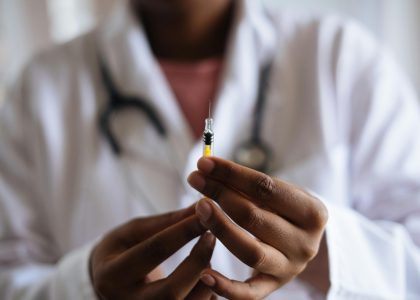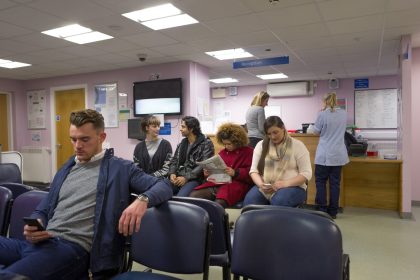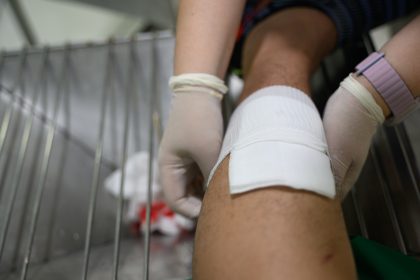Improving shared decision making in surgery
28 August 2024
Shared decision making is when patients and healthcare professionals work together to agree on a treatment plan. It is a collaborative process that aims to make sure patients’ treatment decisions align with their preferences, values and lifestyle. This is particularly important when making decisions to have surgery because the consequences of an operation are usually immediate and irreversible.
During this research conversation, Dr Christin Hoffmann, a research fellow at the Bristol Medical School, talked about the ALPACA study. She explained how the team behind the study (led by Angus McNair) is working on engaging with under-served communities to develop a package of activities (an intervention) to improve shared decision making for surgery.
Aside from developing the intervention, the ALPACA study will also test and assess the benefits of the intervention. To do this, the study team uses inclusive approaches to gather real-time information about patients’ experiences of shared decision making using a brief survey.
Dr Christin Hoffmann, said:
“The consequences of surgery can be significant. Deciding to go ahead with a procedure can be life-changing and we know that patients want to be better informed and more involved in the decision making process.
“That’s where the ALPACA study comes in. Our overall goal is to improve shared decision making for everyone offered surgery. To achieve this, we want to roll out a new electronic system and accompanying package of activities, and are applying for funding to carry out this work
“As part of the study, we send every patient booked for surgery a survey to find out whether there were problems with shared decision making. After that, we feedback the information we received from those surveys to clinical teams. This allows clinical teams to adjust their actions in accordance with what a patient has reported and address any issues that may have come up before surgery.
“We hope that this intervention will ultimately ensure that everyone feels supported in making the decision that is right for them.”
Watch the session to find out more about the ALPACA study:
This talk was part of our regular research conversations series, where members of the public can hear about local research projects and give researchers feedback on their work. Research conversations are informal and designed to give researchers and public contributors a chance to interact. Public contributors are encouraged to ask questions, learn about, and get involved in projects in their area.
Research conversations will usually take place on Tuesdays or Fridays between 10.00-11.00am or 5.00-6.00pm.
Get in touch with Carmel McGrath or see our events page for upcoming sessions.



